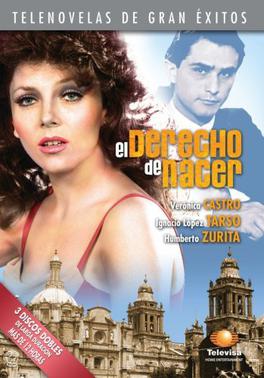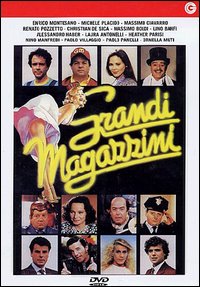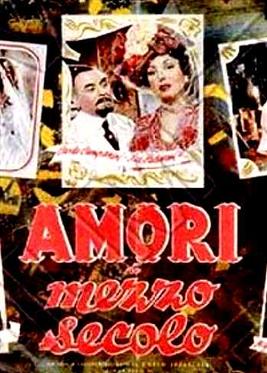Plot
The story, set in Ferrara, starring Matilde, wife of a small industrial, Roberto, struggling with a serious crisis in the family; her son, Matteo, falls in love with mother's best friend, Paola, and the daughter Nina leaves her husband Fausto and her son to pursue a modeling career.
Then Nina falls in love with Gianfranco Vezze, financier of a South American multinational business with Roberto. Matilde, who feels neglected by her family, decides to separate for a while from her husband, and during the separation, he meets Enrico, her old love at a young age that lives in Hamburg, and falls in love with him again. But when Nina and Roberto are arrested and charged with fraud and drug dealing Matilde decides to return home. During the process, Enrico reveals to Matteo the true identity of Vezze and his previous in the financial sector, but also reveals that is protected by the corporation for which he works, so it becomes difficult to catch him; Matteo decides to ask Vezze's wife, Lisa Longhi, locked in a psychiatric clinic. Lisa, encouraged by her father, will testify in court, and Roberto will be exonerated from the accusations directed against him, having been cheated by Vezze, which is a fugitive under a false name, involved years earlier in the murder of an entrepreneur in Marseille.
Matteo decides to end the relationship with Paola so as not to suffer too much his mother and falls in love with a girl his age. Nina, after having attempted suicide in prison, and after being in a coma, became reacquainted with her parents and returns to live with her son and her husband, whom he met another woman, Lucia. Matilde, who in the meantime has separated from her husband after a period of reflection and had to deal with Paola the death of her friend Annamaria, moved to Hamburg where she can live peacefully by Enrico her new romantic relationship.
Stravaganza is a series of novels written by children's author Mary Hoffman. The books are set alternatively between Islington, an area of London, England, and various cities in Talia, an alternate version of Renaissance Italy.
Terra Nostra is a Brazilian telenovela, produced and broadcast by TV Globo in 1999. The telenovela is written by Benedito Ruy Barbosa and directed by Jayme Monjardim.

El derecho de nacer is a Mexican telenovela produced by Ernesto Alonso for Televisa in 1981. Based on the Cuban radionovela of the same name written by Félix B. Caignet adapted for TV by Fernanda Villeli and directed by Raúl Araiza.
Son amores is an Argentine telenovela produced by Pol-ka and issued by Canal 13 in the year 2002 and in the year 2003. It stars Mariano Martínez, Nicolás Cabré, Florencia Bertotti, Miguel Ángel Rodríguez and Millie Stegman. It is the telenovela of Pol-ka most awarded with 6 Martín Fierro Awards, 5 Clarín Awards and an INTE award.

Story of a Love Affair, released in the United Kingdom as Chronicle of a Love, is a 1950 Italian drama film directed by Michelangelo Antonioni in his feature-length directorial debut. The film stars Massimo Girotti and Lucia Bosè in lead roles. Despite some neorealist background, the film was not fully compliant with the contemporary Italian neorealist style both in its story and image, featuring upper-class characters portrayed by professional actors. Ferdinando Sarmi was, however, a fashion designer rather than a professional actor. Its story was inspired by the James M. Cain novel The Postman Always Rings Twice. In the film, the camera pans the same street corner in Ferrara, the director's native city, that appears in his film Beyond the Clouds forty-five years later. In 1951, the film won the Nastro d'Argento Award for Best Original Score and the Special Nastro d'Argento for "human and stylistic values".

Niña amada mía is a Mexican telenovela produced by Angelli Nesma Medina for Televisa in 2003. It's an adaptation of the 1985 Venezuelan telenovela Las Amazonas.

Aurora is a Spanish-language telenovela produced by the United States-based television network Telemundo. It starred Sara Maldonado, Eugenio Siller, and Jorge Luis Pila. As part of the 2010–11 season, Telemundo aired the series from November 1, 2010 to May 20, 2011 weeknights at 8pm/7pm central, replacing El Clon. As with most of its other telenovelas, the network broadcasts English subtitles as closed captions on CC3.

La moglie vergine, internationally released as The Virgin Wife, Valentina and You've Got to Have Heart, is a 1975 Italian commedia sexy all'italiana directed by Marino Girolami.

Grandi magazzini is a 1986 Italian anthology comedy film directed by Castellano & Pipolo.

Mid-Century Loves is a 1954 Italian anthology historical melodrama film consisting of five segments directed by Glauco Pellegrini, Pietro Germi, Mario Chiari, Roberto Rossellini and Antonio Pietrangeli.

Marriages is a 1998 Italian romantic comedy film directed by Cristina Comencini. For her performance Cecilia Dazzi won the David di Donatello for best supporting actress.

La dama velata is a 2015 Italian-Spanish mysterydrama television miniseries directed by Carmine Elia. It was produced by Rai Fiction, Lux Vide and Telecinco Cinema, with a budget of about 10 million euros. It is set in Trentino, in the late nineteenth century. In Italy, the series was broadcast on Rai 1 and Rai 1 HD from March 17 to April 16, 2015.

Dolce Amore is a 2016 Philippine romantic drama television series directed by Mae Cruz-Alviar, Cathy Garcia-Molina and Richard Arellano, starring Liza Soberano and Enrique Gil. The series aired on ABS-CBN's Primetime Bida evening block and worldwide on The Filipino Channel from February 15 to August 26, 2016, replacing Pangako sa 'Yo, and was replaced by Till I Met You.

Bajo un mismo rostro is a Mexican telenovela produced by Christian Bach and Humberto Zurita for Televisa in 1995.
Alguna vez tendremos alas is a Mexican telenovela produced by Florinda Meza for Televisa in 1997.

Pazze di me is a 2013 Italian comedy film co-written and directed by Fausto Brizzi.

Precious Hearts Romances Presents: Los Bastardos is a 2018 Philippine drama television series under Precious Hearts Romances loosely based on the Filipino pocket book novel Cardinal Bastards by Vanessa, starring Ronaldo Valdez, Jake Cuenca, Marco Gumabao, Albie Casiño, Joshua Colet, Joseph Marco, Diego Loyzaga, and Gloria Diaz. The series premiered on ABS-CBN's Kapamilya Gold afternoon block and worldwide via The Filipino Channel from October 15, 2018 to September 27, 2019, replacing Precious Hearts Romances Presents: Araw Gabi and was replaced by Sandugo. The series was inspired by Fyodor Dostoevsky's The Brothers Karamazov.

Campanas en la noche is a 2019 Argentine telenovela created by Lily Ann Martin and Jessica Valls for Telefe. It premiered on January 14, 2019 and ended on May 15, 2019. It stars Esteban Lamothe, Calu Rivero and Federico Amador. The supporting cast includes Eugenia Tobal, Rodrigo Guirao Díaz, Patricia Viggiano, Mariano Argento, Adrián Navarro, Martín Slipak, Laura Laprida, Clara Alonso, Franco Masini, Azul Fernández, and Bárbara Amaral. There is also the special participation of Héctor Bidonde, Jean Pierre Noher, and Noemí Frenkel.













